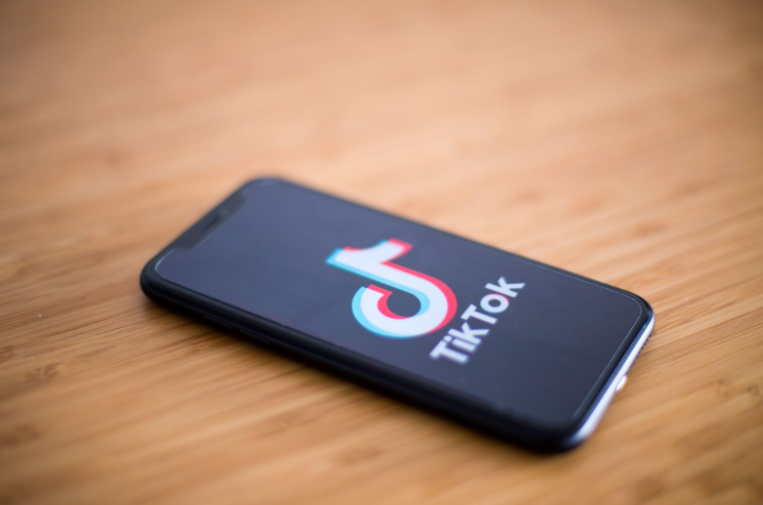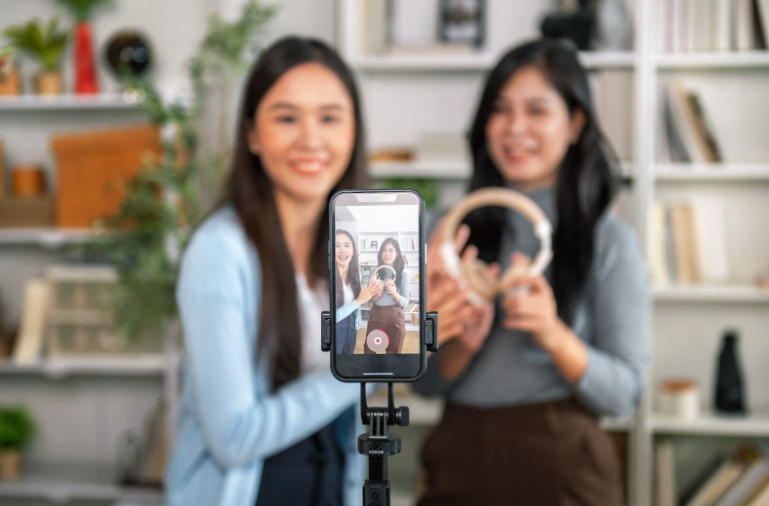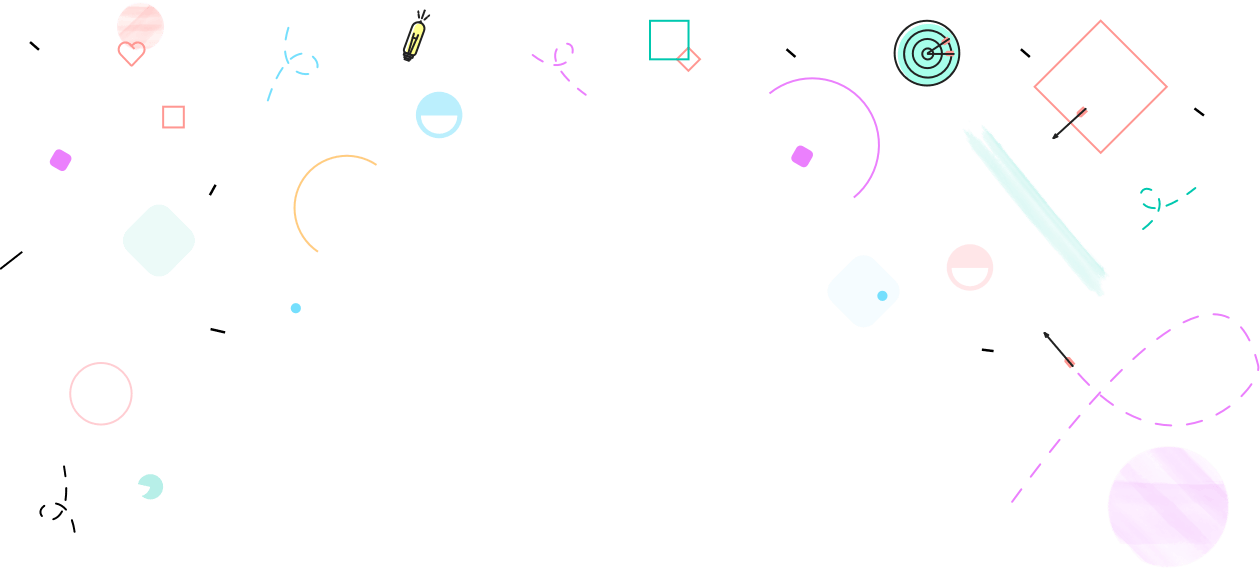Table of Contents
Not only has TikTok become the new social media powerhouse in recent years – boasting a daily average of over 50 million users – it’s become a hub for consumers and creators alike to share content, build communities, and even utilize search capabilities over legacy search engines like Google. Within a year, the app’s growth cultivated over 100M users, most of which are Gen Z and millennial consumers.
While the historic viewership and participation from these users is enough to threaten most other social platforms, their power to leverage influencers and creators for advertising purposes on the app has truly transformed the entire industry of influencer marketing. While influencers across the app have drawn an incredible amount of advertising opportunities to the app, TikTok’s alleged new plans have opened up a discussion about their future.
The Information reported on April 11 that TikTok has started conversations about introducing AI-generated virtual influencers to their platform – a feature that would not only assist in advertising for brands on the app, but also for TikTok Shop merchants selling products directly on-site. While it seems the virtual influencer initiative is still in planning and testing stages, it has the potential to completely reshape the advertising industry for social platforms. Consumers and “real” influencers and creators making content on TikTok will surely feel the shift.
via Vecteezy
TikTok’s Alleged plans for AI-generated Virtual Influencers Sparks Discourse About the Future of Advertising on the App
According to an advertiser allegedly working on TikTok’s new virtual influencer plans, the feature would generate a script for an AI-generated influencer based on input and collaboration from the brand. Not only would this provide inevitably cheaper solutions for brands to advertise tools, products, and services – it’d provide the opportunity to generate much more controlled and tailored content at larger scales.
Despite the obvious benefits AI-generated virtual influencers would provide for brands, advertisers, and TikTok’s monetary divisions, larger discussions about their ethicality are impossible to ignore. What kind of ads interest users? How can their consumption of social advertising influence their engagement on the app? How is connection, trust, and authenticity interwoven into all of it? It’s questions like these that are essential to pose, especially amid TikTok’s virtual influencer rumors. These questions are important to discuss in regards to advertising ethicality – something that’s growing more precarious as our social apps integrate closely into the daily lives of consumers.
The Role of Influencers in TikTok’s Current Advertisement Structure
TikTok’s current advertising strategy is split into three main divisions: campaigns, ad groups, and advertisements. Set up to help drive reach and connection with target audiences, each of the three groupings has specific benefits related to brands’ budgets, goals, and formats. However, alongside these traditional advertising methods, the usage of influencer marketing has grown exponentially on the platform. With hundreds of thousands of influencers currently profiting from self-created content on the app.
On TikTok specifically, Ad Week studies reveal that almost 50% of users have purchased a product after seeing it promoted by an influencer on the app – a kind of trust, genuinity, and authenticity that fuels these relationships and keeps monetary compensation growing on the platform. Of course, it’s this relationship – along with a trust and standard against advertising manipulation – that drives these influencers’ success. Not the rate at which they’re posting videos or the quality of their content, which can be important for reach. The authenticity of their own brand as influencers that can help to promote others.
Through sponsored posts, brand partnerships, and sometimes affiliate marketing, influencers have the potential to make TikTok creation their full-time job. Taking on more opportunities and heightening their financial compensation. However, as the market becomes saturated and influencers diversify their social platforms, competition heightens to make a living in the industry.
TikTok’s Previous Removal of the ‘Creator Fund’ and Their Current Relationship with Influencers
Not only does competition and the potential for AI virtual influencer intervention threaten “real” influencers on TikTok, their ability to make consistent money on the app poses harm to their longevity on the app. The once-revolutionary “billion dollar Creator Fund” – an initiative TikTok rolled out in 2020 to help provide “lucrative” compensation for creators of all sizes – has since been “shut down” to provide better opportunities for creators to diversify their earnings with different programs and resources on the platform (according to a spokesperson from TikTok).
Despite the Creator Fund’s intention to provide compensation to influencers with followings as low as 10,000 users, most creators couldn’t help but feel frustrated by the reality the program offered just months in. With discourse utilizing terms such as “sabotage” and “manipulation,” it became quite clear that influencers were not happy with the reach nor compensation the fund cultivated. However, when TikTok shut down the program completely instead of reworking its fundamental regulations, many influencers felt that their work on the app is underappreciated.
With the legacy of the Creator Fund’s alleged inefficiency, it’s no surprise that influencers are wary of TikTok’s virtual influencer plans. Despite being labeled as “an addition” to the current platform’s creators, instead of “competition.”
Concerns over TikTok’s AI-Generated Content and Virtual Influencers.
While new data & social landscapes clearly have the opportunity to reinvent marketing and advertising strategies across industries with investments into nextgen technologies like behavioral tracking and artificial intelligence (AI), the question of ethicality in its usage remains vague. Is there a way to integrate these technologies into advertising initiatives without taking advantage of consumers? Is integration possible without taking away opportunities from “real people” contributing to these platforms? Not only do studies relay a similar sentiment in users – with almost 75% saying data privacy is their top concern, alongside trust & consistency – they open a discussion about the different ways these technologies threaten transparency on social apps like TikTok.
via Vecteezy
The integration of virtual influencers, which have the potential to greatly expand advertising output compared to traditional creators, could threaten the livelihood of many on the app. Especially given their cost efficiency for brands, they have the potential to take away money and opportunities from others.
Like many other AI-generated technologies, the ethicality surrounding manipulative marketing also poses risks . Do users know these are not “real people,” but rather spokespeople from brands – even with “ad” labels? Is it ethical to promote products and tools for “real people,” from an AI-generated virtual influencer?
All in all, discussions about TikTok’s virtual influencers revolve around this ethical debate. Is it worth it to run the risk of harming relationships with current influencers on the app? Will consumers be comfortable with this integration – or will they forgo entertainment on the app altogether?
Closing Thoughts on TikTok’s Alleged ‘Virtual Influencer’ Plans
Amid growing concerns from the public about the introduction of AI-generated influencers, TikTok’s alleged plans are going to spark some controversy. Especially following their removal of the “Creator Fund” and recent legislative concerns about the app’s safety, many influencers are already re-thinking their future on the app – with many splitting their time, diversifying their incomes, and starting to build new roots on different social platforms like YouTube and Instagram.
With a marketing and advertising approach centering around “authentic, engaging, and democratized” initiatives, TikTok’s alleged planning of AI-generated content has a growing potential to divide users and spark mistrust. Not only for influencers and creators on the app that face heightened risks to their job security, but for users looking to enjoy “real” content on the platform.
With 2023 Pew Research studies that reinforce theories about the mistrust of AI-generated content by the general public, assumptions that viewers would be wary of TikTok’s virtual influencers and advertisements is seemingly inevitable. People are sharing and engaging with content online for a variety of reasons – self-fulfillment, education, sharing value with others – but the root of their consumption lies in authenticity. Are virtual influencers, especially when participating in marketing initiatives and advertising campaigns, reinforcing authenticity on TikTok?
While information about TikTok’s planning and current implementation stages are relatively vague, one thing remains clear: the future of their advertising strategy and interwoven relationships with influencers on the app are sure to change. Are virtual influencers the new “cash cow” of TikTok’s monetary advertisements? Or will they ultimately be the downfall of their app – along with their infamous relationship with eager consumers?

























